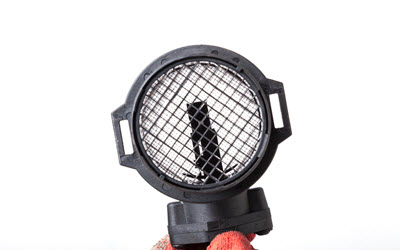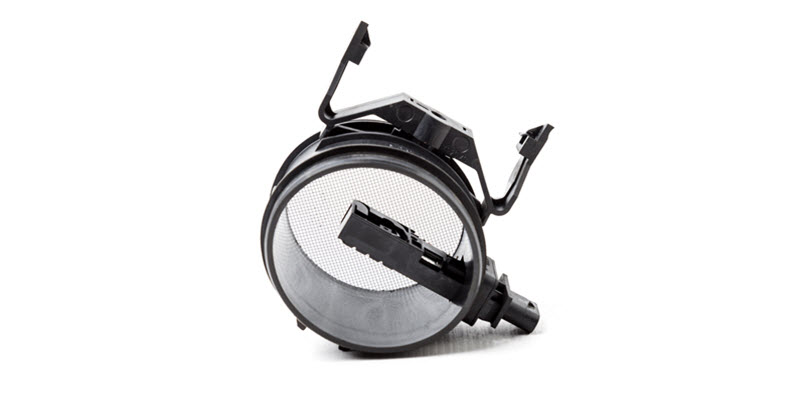Mass AirFlow (MAF) sensor failure can be a worrisome problem for Volkswagen owners. As a key component in the engine management system, the MAF sensor is in charge of accurately measuring the amount of air entering the engine. So, when the MAF sensor malfunctions, it can lead to a range of performance issues and concerns.
Volkswagen cars and SUVs are not immune to MAF sensor failure, and understanding how it works is essential for owners to ensure the optimal performance of their vehicles. Do you know the causes, symptoms, and recommended solutions for addressing mass airflow sensor failure in Volkswagens?
Common Causes of VW MAF Failure
- Contamination: Contamination is a common cause of MAF sensor failure in VW As the sensor is located in the intake system, it is exposed to airborne particles, dirt, and debris. Over time, these contaminants build up on the sensing element, leading to inaccurate readings. Contamination can occur due to a clogged or dirty air filter, which fails to filter out particles effectively. Engine oil leaks can also contribute to contamination if the oil reaches the intake system.
- Electrical Issues: Electrical problems can also result in MAF sensor failure. Faulty electrical connections, damaged wiring, or sensor circuitry malfunctions can disrupt the sensor’s ability to transmit accurate readings to the ECU. Loose connections or corroded terminals can cause intermittent failures or erratic sensor behavior, affecting engine performance.
- Mechanical Damage: The MAF sensor can be susceptible to mechanical damage. The impact from debris, such as rocks, can cause physical damage to the sensor housing or sensing element. Accidental contact during maintenance or repairs, improper handling, or installation can also lead to mechanical damage of the MAF.
Look for These Symptoms
- Engine Performance Issues: When the MAF sensor fails, it can significantly impact the engine’s performance. The engine may exhibit low power and acceleration, making it difficult to reach higher speeds or climb inclines. Hesitation or jerking during acceleration can also be observed. Additionally, the engine may experience rough idling, where it runs unevenly or feels unstable when at a standstill.
- Poor Fuel Economy: A malfunctioning MAF sensor can disrupt the air-fuel mixture, leading to poor fuel economy. If the sensor provides inaccurate readings to the ECU, the engine may run excessively rich (too much fuel) or lean (insufficient fuel). Running rich can result in increased fuel consumption while running lean can lead to decreased fuel efficiency. Drivers may notice a decrease in mileage or find themselves refueling more frequently than usual.
- Check Engine Light (CEL): When the MAF sensor encounters a problem, it often triggers the vehicle’s onboard diagnostic system, causing the CEL to illuminate on the dashboard. The CEL serves as a warning to the driver that a fault has been detected in the engine management system. Retrieving the diagnostic trouble codes (DTCs) using a diagnostic scanner can provide specific information about the MAF sensor-related issue, aiding in diagnosis and repair.
- Unstable Idle: A failing MAF sensor can disrupt the engine’s idle speed control. As a result, the engine may struggle to maintain a stable idle, fluctuating between higher and lower RPMs. This unstable idle can be accompanied by rough vibrations or a noticeable change in engine sound.
It is important to note that these symptoms can be indicative of other engine or sensor-related issues as well. Therefore, it is recommended to consult a professional technician or utilize diagnostic tools for accurate diagnosis and proper resolution of the problem.
Solutions for Volkswagen MAF Failure
In some cases, a contaminated MAF sensor can be restored to proper functioning by cleaning it. Using a specialized MAF sensor cleaner, your mechanic can carefully remove the sensor and clean the sensing element and wires. However, caution must be exercised to avoid damaging the delicate components during cleaning.
If cleaning does not resolve the issue or if the MAF sensor is physically damaged, replacement is the most effective solution. Seek professional assistance to ensure the proper installation of the new sensor. OEM or high-quality aftermarket sensors are recommended for optimal performance and longevity.
Let Us Help You With Your Volkswagen’s MAF Issues
If you need help with your Volkswagen,  you can rely on our expertise at Master Mechanics Auto Repair. Our mechanics are well-experienced in diagnosing and resolving various automotive problems, ensuring your vehicle’s performance and reliability are maintained. We are conveniently located to serve car owners from Battle Creek, Portage, and Kalamazoo, MI. Book an appointment now with our professional team to address any of your automotive needs!
you can rely on our expertise at Master Mechanics Auto Repair. Our mechanics are well-experienced in diagnosing and resolving various automotive problems, ensuring your vehicle’s performance and reliability are maintained. We are conveniently located to serve car owners from Battle Creek, Portage, and Kalamazoo, MI. Book an appointment now with our professional team to address any of your automotive needs!



